Makes sense. I would assume he would support Italy to help weaken the Western democracies.I don't see Stalin backing Mussolini. The Italians don't have anything to offer the Soviets and Stalin wasn't interested in making deals with people who don't have anything to offer him.
You are using an out of date browser. It may not display this or other websites correctly.
You should upgrade or use an alternative browser.
You should upgrade or use an alternative browser.
Stemming the Tide
- Thread starter ThatOneGuy
- Start date
The German-Italian War

The German Army marches to War

The German Army marches to War
With the declaration of war in November 1938 Europe once again was at war. The British and French, while they didn't declare open war on Italy at the time, they sent rations and supplies to Germany while giving them intelligence they gathered on Italian forces in the Alps. Meanwhile Italy struggled to find any type of support seeing as it was the only Fascist nation on the planet. Even Joseph Stalin, leader of the Soviet Union and infamous for his cold relations with the West, refused to aid Italy, it seemed hopeless. Mussolini decided not go out out without a fight though and sent this men into the Alps to keep the Germans stalled while he exhausted his options. Meanwhile German forces were prepared for a relatively quick war. They had 4,722,000 men in uniform compared to the Italians 3,000,000 along with a steady supply line of resources from both France and Britain while the Italians had to rely on what they had in Italy and Libya. The War was going to be over by Christmas (but that's what they said about WW1).
The Disaster at Pass 45
When the Germans advanced into a pass in the Alps called Pass 45 they were not expecting much. The War had been going on for almost 3 weeks and the Germans were handing the Italians their asses on a plate. They were in high spirits as they prepared to advance into Italy proper, they just needed to secure the Pass. I will let Carl Shickulgruber, then just a Obersoldat (Private First Class), explain what happened next. "Suddenly there was a crack of a rifle and someone yelled 'Sniper!' before the entire column ducked. There was no sign of injury and we guessed he missed, but he was right on the mark. As we arose to pinpoint the location of the man someone screamed 'Avalanche!', but it was to late for us to escape. Before I new it I was tossed around like a discarded toy as tons of snow slammed into our ranks. It was over in a heartbeat and I soon found myself buried under the snow. I lived in this region since I was born and was taught what to do in this situation. I spit on my hand and watched the spit flow down my sleeve, indicating I was facing upward, so I begun to dig. It didn't take long before I pulled myself out of the snow and looked around. It was completely white with the rest of the collumn searching for survivors.
The Disaster at Pass 45 eliminated almost 145 German soldiers and 4 Panzers with only 15 soldiers surviving, most (including Carl) suffering from severe frostbite. When news reached Berlin none was hit harder than the President, from the journal of Otto Wells "When news of the disaster in the Alps was conveyed to him, Walther took it especially hard. He blamed himself for ordering the attack and starting the war." Walther, although burdened with the failure of Pass 45, ordered another push against the Italians. The objective of Operation Alpine Eagle was to push the Italians out of the Alps and then prepare for a move into North-East Italy. The beginning of the Operation went smoothly with many battles fought and victories won but hit a snag in the road as they approached the "end" of the Alpine's. Despite clearing the mountains behind them, the Germans were never able to completely clear them allowing for small bands of Italian units to raid and disrupt the regular re-supply of German Units. In response Franz Halder, promoted to Commander in Chief of the Army, pulled back a significant amount of German units to deal with the Italians still in the Alps. These sweeps were largely unsuccessful and only ended up diverting valuable resources from the war effort. When hearing about this Walther held a War Cabinet meeting to discuss strategies for taking out the straggling Italians, this is where the infamous "Avalanche Plan" was thought up. The Avalanche Plan was simple, the German Luftwaffe was to make as much noise in the Alps to cause Avalanches and crush the Italians under natures snowy boot.* That was quickly squashed for the sheer ridiculousness of the plan and a new one was thought up. In it the Germans would lure them out into battle before they themselves are ambushed and destroyed.
*Called one of the more...ridiculous plans of the Second Great War
Last edited:
So I should get my computer back sometime this week, the mail got delayed a little so it should get here by the end of the week
Someone else, possibly the USSR, Yugoslavia, Bulgaria, Romania or Turkey/Greece will have to join soon. Or else it isn't a Great War, just How to Curbstomp Italy
I thought I could maybe get the Soviets to help Italy but no...thats not happening. I might have to go back and change all the names to the German-Italian War or somethingSomeone else, possibly the USSR, Yugoslavia, Bulgaria, Romania or Turkey/Greece will have to join soon. Or else it isn't a Great War, just How to Curbstomp Italy
At Wars End
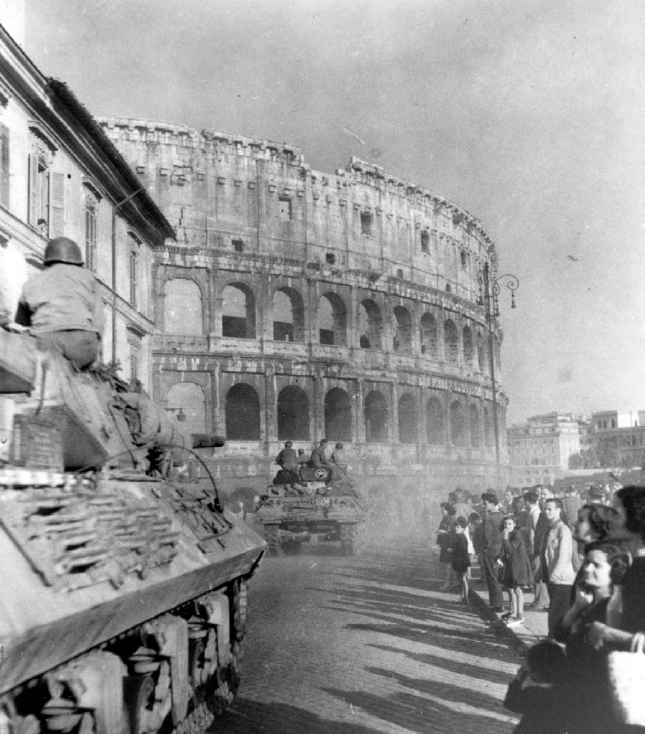
As the war grinned to a stalemate in the Alps Italy looked for a way out. With its limited space and no international support Mussolini was advised to seek for a peace but he was reluctant. Calling his advisers cowards and defeatists Mussolini dismissed them from his presence and took total control of the Army. He ordered a offensive planned to drive the Germans out of the Alps. His generals reluctantly handed over a plan code named Operation Alpine Eagle set to start in February of 1938. It called for a series of fake troop movements to suggest internal dissent and bait the Germans into attacking. The Italians would then form a bulge and move to cut it off, surrounding and destroying the German Army. Mussolini loved the idea and called for its immediate adoption. Again his generals worried for Italy's future and plotted to depose him.
As the date for launching the operation approached Germany looked to be taking the bait. As Italy shuffled its troops up and down the line and pulled some away the Germans geared up for the offensive, then the Brits cracked the code. British intelligence, in a effort to aid Germany, cracked the Italian radio codes and found out about Operation Alpine Eagle. When von Brauchitsch found out he called his Generals to Berlin and formulated a plan of his own. When the Germans finally did attack the Italians followed the plan to the letter. When they began to attack the base of the bulge the Germans launched their plan and attacked up and down the line, forcing the Italians to divert resources to deal with that. Their attack on the bulge had failed and the Germans once again began to move forward. By March the Germans once again were into Italy and out of the Alps. Italy was in danger of complete and utter defeat if they were not stopped before they reached the boot.
The Italian Army attempted to halt the German advance outside Bolzano but were unsuccessful. The Germans continued their advance relentlessly and moved to capture Venice to give Britain a easier time to resupply them. The Italians also guessed this was their objective and began to re-enforce the city in preparation for the attack. The stage was set for a 3-part drama that was the Battle for Venice. The attack began with the Luftwaffe bombing the city relentlessly for a week both day and night. This bombing was followed by a artillery barrage made up of almost 100 guns. This barrage went on for another week as the German army re-supplied and waited for their supply lines to catch up to them. As March of 1939 began to come to end the Germans launched the main attack against the battered garrison. The Battle went on for almost a month as the two forces battled for not blocks but sometimes rooms at a time. It was a slow methodical extermination of the Italian Army that horrified the world as pictures of Italian POW's being shot leaked to the press.
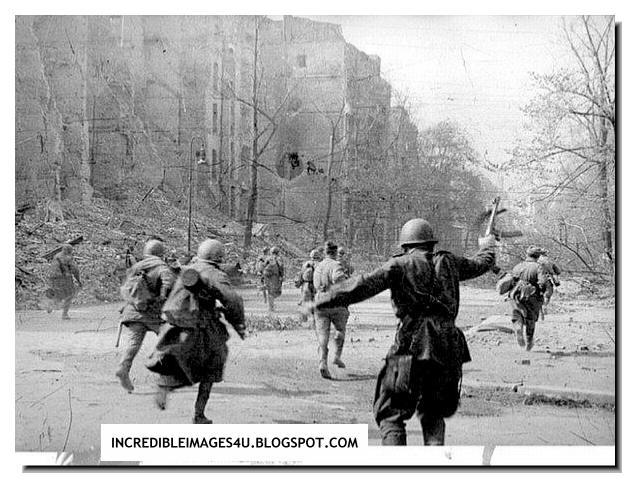
German forces charge into Venice
Opinion in Britain and France began to shift away from supporting Germany but Chamberlain and Lebrun wanted to see Germany victorious. They sent a warning to von Brauchitsch, control your troops or we stop our support; The warning was well heeded as future reports were proven Italian propaganda. Meanwhile in Venice the Italian Army all but dissolved as a German push took most of the city and left many units stranded and surrounded, and they began to act independently. In Rome Mussolini's generals continuously requested that they be allowed to order a retreat but Mussolini refused by saying "We cannot retreat now! This is no longer just another battle, this is our Mediolanum![1]" this was the last straw. The plotters attacked the Roman Senate to depose Mussolini but ended up in a heated battle on Rome's streets. In Venice word spread quickly of the plot and the remaining Italians began to fight each other allowing for the Germans to take the city. The same happened across the county as a westward push met little resistance, it wasn't long before the road to Rome lay open.
It wasn't long before the Germans were entering the Eternal city and met an unexpected sight. The roads were packed with jubilant crowds and grateful Italian soldiers all thanking the Germans for helping them liberate Italy from Fascism. The German Italio War ended a week later with Italy agreeing to pay for the damage to Munich and cease supporting Austrian militants. The Germans had won and regained their place as a Military power on the Continent.
[1]Refrencing the Battle of Mediolanum in 259
verry interesting
I just found this; it looks interesting. I can't wait to see where you take this. Whatever else happens, I'm sure Italy's share of reparations from the Great War has ended. Also, Germany has shown that it legitimately needs a decent army. Now might be the time to suggest negotiating some sort of continental arms limitations?
Was there any naval action here? Seems like the war was long enough for a few u-boats or cruisers to reach the Mediterranean, or at least some Italian ships to be stopped in the Atlantic.
I just found this; it looks interesting. I can't wait to see where you take this. Whatever else happens, I'm sure Italy's share of reparations from the Great War has ended. Also, Germany has shown that it legitimately needs a decent army. Now might be the time to suggest negotiating some sort of continental arms limitations?
Was there any naval action here? Seems like the war was long enough for a few u-boats or cruisers to reach the Mediterranean, or at least some Italian ships to be stopped in the Atlantic.
While I didn't explicitly say so A few German u-boats were all but blockading Libya from the Italian MainlandI just found this; it looks interesting. I can't wait to see where you take this. Whatever else happens, I'm sure Italy's share of reparations from the Great War has ended. Also, Germany has shown that it legitimately needs a decent army. Now might be the time to suggest negotiating some sort of continental arms limitations?
Was there any naval action here? Seems like the war was long enough for a few u-boats or cruisers to reach the Mediterranean, or at least some Italian ships to be stopped in the Atlantic.
Let's see... Hitler dead? So far, so good. No invasion of Poland/WWII (I hope)? Good, good. No Munich agreement or annexing of Czechoslovakia? I like it. Post-Anschluss Germany continuing to re-arm? That's worrying. Mussolini being an idiot and getting what he deserved? Par for the course. Germany "liberating" Italy? Not sure what to think.
All in all, its a good TL so far. Keep it up, can't wait to see what happens next.
All in all, its a good TL so far. Keep it up, can't wait to see what happens next.
WHOO! I Havent completely cocked this up! (pardon my french) And Germany didn't intend to liberate Italy, that was kind of a side effect of the Invasion
I am no sort of economist so tell me if this is plausible
==========================================================================================================
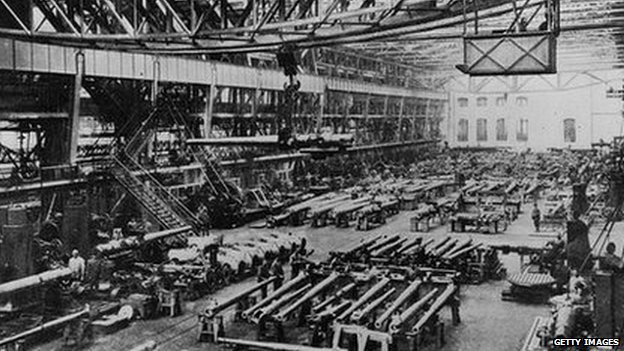
Image of a factory in Berlin, part of von Brauchutsch's Wirtschaftsreformen, or economic reforms
With the war over von Brauchitsch came to a startling reality, Germany's economy was in shambles due to the horrible mismanagement of the various Nazi departments. In the month after the war was over the German Mark showed another sharp downturn in value as factories downsized and switched to civilian production. To counter this he set in motion the Wirtschaftsreformen to begin to restructure the German economy. Inspired by Roosevelt's Great Deal, it had three phases, Phase one consisted of breaking up the Nazi run corporate empires and giving start-up companies a 5 year tax break, Phase two was the creation of jobs by expanding the Autobahn among many other public works, and the last phase was formally switching Germany from a wartime economy to a peacetime economy. Proposed by Otto Wells, von Brauchitsch's mentor of sorts to run the country effectively, it is widely attributed to Germany's economic hegemony over the Continent it enjoys today.
Phase One went swimmingly for the most part. For most companies founded by the Nazi run German Labour Front(1) the conversion was easy enough as they didn't have Jews in employment in such massive amounts, allowing for them to release them and/or hire them for a tidy profit, allowing for them to expand. They only met real resistance in the Brunswick Coal Mines where von Brauchitsch had to nationalize it and then sell it to another person. Meanwhile the tax breaks were working wonders on small businesses across Germany, the most notable of these was Deutsche Reichsbahn (German Railway) who quickly expanded and brought rails across Europe. Fokker, although not being a startup business, managed to negotiate a 2 year tax break allowing for them to expand their air fleet and launch the first around the world flight in the late 1950's.
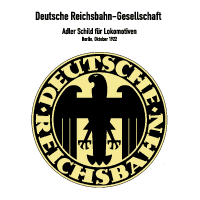

 All the above companies gained massively from the Wirtschaftsreformen of late 1939
All the above companies gained massively from the Wirtschaftsreformen of late 1939
The world took notice and soon the German Mark began to rise in value once again, encouraging von Brauchitsch to launch Phase Two. He ordered a massive overhaul of the Autobahn and Eisenbahn (railroad) by strengthening their ties to the ground (for the railroad) and re-paving almost 1,650 km of pavement for the Autobahn.[1] He also encouraged women to put out applications and join the workforce, a very progressive idea for the time, and threatened nationalization to any company who discriminated against them. While this raised protests from both BMW and I.G. Farben they fell into line and soon women made up a sizeable portion of the workforce. To beautify German cities von Brauchitsch encouraged city gardens and such to be built and even created a federal grant to any city who used the money to beautify their city. It worked and soon the German cities were lush with foliage and parks were under construction in almost every city. This was nothing but beneficial and by January 1940 the German economy was prime for formal war to peace time switch.
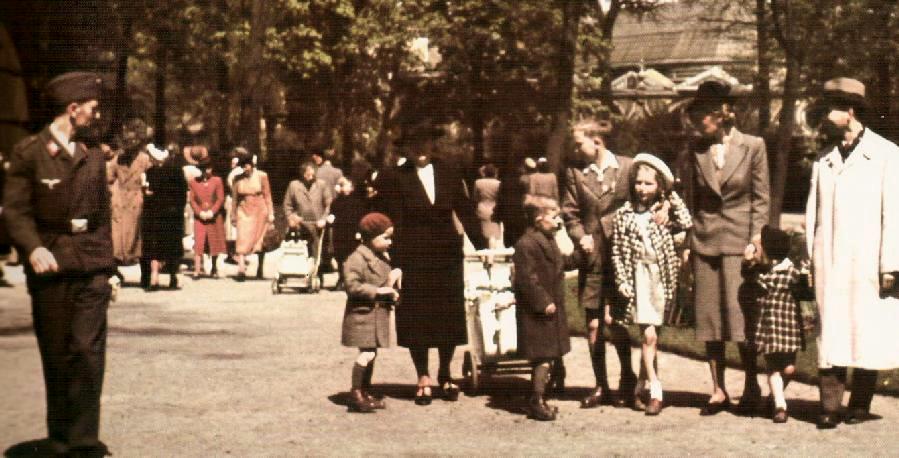
The Germans enjoy the park, 1939
All of these changes snatched world attention and soon the German tourist industry was booming as people wanted to see what they could accomplish. Again encouraged by foreign praises von Brauchitsch made a formal announcement to the nation "Over the past months Germany has undergone changes, good changes, that brought her once again from the brink of bankruptcy and into prosperity. Therefore I hereby employ all factories currently producing war materials to begin switching to consumer goods, effective immediately.. While the road was bumpy at first, the Federal government had to subsidise a factory or two for some months at a time, they made the change with alarming speed and efficiency. Surpassing both national and international expectations the world was shocked...but in a good way. When asked about how he thought about the new German president Winston Churchill remarked "I think we have found a good nut." with a smile.
(1)It was broken up in 1939
[1]I dont know how long it was by the end of 1939.
==========================================================================================================
Die Wirtschaft

Image of a factory in Berlin, part of von Brauchutsch's Wirtschaftsreformen, or economic reforms
With the war over von Brauchitsch came to a startling reality, Germany's economy was in shambles due to the horrible mismanagement of the various Nazi departments. In the month after the war was over the German Mark showed another sharp downturn in value as factories downsized and switched to civilian production. To counter this he set in motion the Wirtschaftsreformen to begin to restructure the German economy. Inspired by Roosevelt's Great Deal, it had three phases, Phase one consisted of breaking up the Nazi run corporate empires and giving start-up companies a 5 year tax break, Phase two was the creation of jobs by expanding the Autobahn among many other public works, and the last phase was formally switching Germany from a wartime economy to a peacetime economy. Proposed by Otto Wells, von Brauchitsch's mentor of sorts to run the country effectively, it is widely attributed to Germany's economic hegemony over the Continent it enjoys today.
Phase One went swimmingly for the most part. For most companies founded by the Nazi run German Labour Front(1) the conversion was easy enough as they didn't have Jews in employment in such massive amounts, allowing for them to release them and/or hire them for a tidy profit, allowing for them to expand. They only met real resistance in the Brunswick Coal Mines where von Brauchitsch had to nationalize it and then sell it to another person. Meanwhile the tax breaks were working wonders on small businesses across Germany, the most notable of these was Deutsche Reichsbahn (German Railway) who quickly expanded and brought rails across Europe. Fokker, although not being a startup business, managed to negotiate a 2 year tax break allowing for them to expand their air fleet and launch the first around the world flight in the late 1950's.



The world took notice and soon the German Mark began to rise in value once again, encouraging von Brauchitsch to launch Phase Two. He ordered a massive overhaul of the Autobahn and Eisenbahn (railroad) by strengthening their ties to the ground (for the railroad) and re-paving almost 1,650 km of pavement for the Autobahn.[1] He also encouraged women to put out applications and join the workforce, a very progressive idea for the time, and threatened nationalization to any company who discriminated against them. While this raised protests from both BMW and I.G. Farben they fell into line and soon women made up a sizeable portion of the workforce. To beautify German cities von Brauchitsch encouraged city gardens and such to be built and even created a federal grant to any city who used the money to beautify their city. It worked and soon the German cities were lush with foliage and parks were under construction in almost every city. This was nothing but beneficial and by January 1940 the German economy was prime for formal war to peace time switch.

The Germans enjoy the park, 1939
All of these changes snatched world attention and soon the German tourist industry was booming as people wanted to see what they could accomplish. Again encouraged by foreign praises von Brauchitsch made a formal announcement to the nation "Over the past months Germany has undergone changes, good changes, that brought her once again from the brink of bankruptcy and into prosperity. Therefore I hereby employ all factories currently producing war materials to begin switching to consumer goods, effective immediately.. While the road was bumpy at first, the Federal government had to subsidise a factory or two for some months at a time, they made the change with alarming speed and efficiency. Surpassing both national and international expectations the world was shocked...but in a good way. When asked about how he thought about the new German president Winston Churchill remarked "I think we have found a good nut." with a smile.
(1)It was broken up in 1939
[1]I dont know how long it was by the end of 1939.
Last edited:
Scarey...
Even though there's no war, and Germany is switching to peacetime production, a powerful, efficient Germany is a possible threat--and contrary to generations of British policy of preventing a hegemonic power on the continent. Britain..and France, and the USSR--will be cautious.
Good stuff
Even though there's no war, and Germany is switching to peacetime production, a powerful, efficient Germany is a possible threat--and contrary to generations of British policy of preventing a hegemonic power on the continent. Britain..and France, and the USSR--will be cautious.
Good stuff
So I had a update typed up...but my computer crashed and I lost it. So I will have to get it to you guys today or tomorrow.
So I will have to get it to you guys today or tomorrow.
...Winston Churchill, who was campaigning for the Prime Ministership of Britain...
This doesn't work. If Britain is not at war, Churchill is a backbench MP. No one would even consider him for any ministry, much less as Prime Minister. And one does not campaign for Prime Minister, one campaigns for Party Leader within one's party. Chamberlain would be unassailable as Party Leader until his death in late 1940, or the defeat of the Conservatives in an election that year (OTL postponed because of the war). In either case, Churchill is not the man to replace him.
he Germans continued their advance relentlessly and moved to capture Venice to give Britain a easier time to resupply them. The Italians also guessed this was their objective and began to re-enforce the city in preparation for the attack. The stage was set for a 3-part drama that was the Battle for Venice. The attack began with the Luftwaffe bombing the city relentlessly for a week both day and night. This bombing was followed by a artillery barrage made up of almost 100 guns. This barrage went on for another week as the German army re-supplied and waited for their supply lines to catch up to them. As March of 1939 began to come to end the Germans launched the main attack against the battered garrison. The Battle went on for almost a month as the two forces battled for not blocks but sometimes rooms at a time. It was a slow methodical extermination of the Italian Army that horrified the world as pictures of Italian POW's being shot leaked to the press.
Venice would be of no use whatever to the German army. It hasn't been a significant port since the 1800s.
And any sustained attack on Venice would be regarded as horrific cultural vandalism.
AussieHawker
Banned
I am no sort of economist so tell me if this is plausible
==========================================================================================================
With the war over von Brauchitsch came to a startling reality, Germany's economy was in shambles, having been based off Jewish slave labor. In the month after the war was over the German Mark showed another sharp downturn in value as factories downsized and switched to civilian production. To counter this he set in motion the Wirtschaftsreformen to begin to restructure the German economy. Inspired by Roosevelt's Great Deal, it had three phases, Phase one consisted of freeing the last of the Jewish slaves and giving struggling companies tax breaks for 5 years, Phase two was the creation of jobs by expanding the Autobahn among many other public works, and the last phase was formally switching Germany from a wartime economy to a peacetime economy. Proposed by Otto Wells, von Brauchitsch's mentor of sorts to run the country effectively, it is widely attributed to Germany's economic hegemony over the Continent it enjoys today.
The German economy wasn't based on Jewish slave labor. While they did use labor from the various people they had in their concentration camps it wasn't a mega part of their economy. Also they didn't really start using labor caps full scale until the war had already started.
A much more serious problem was the private empires built up by the Nazi Elite who were extremely corrupt and the Bureaucratic mess that was set up by Hitler. The different departments had conflicting rolls which caused them to fight each other which allowed Hitler to intervene to favor one or another to keep a grip on power.
Also another thing that could help the new German government get some cash is to sell off Captured Italian and old German equipment to countries that need/want it. Several could be
- China (desperate war against japan)
- Japan (may want some surplus equipment but maybe not)
- Spain (civil war)
- Various Balkan countries (would want to arm up and would be more resistant to USSR)
- South America (same as Balkans)
Share: